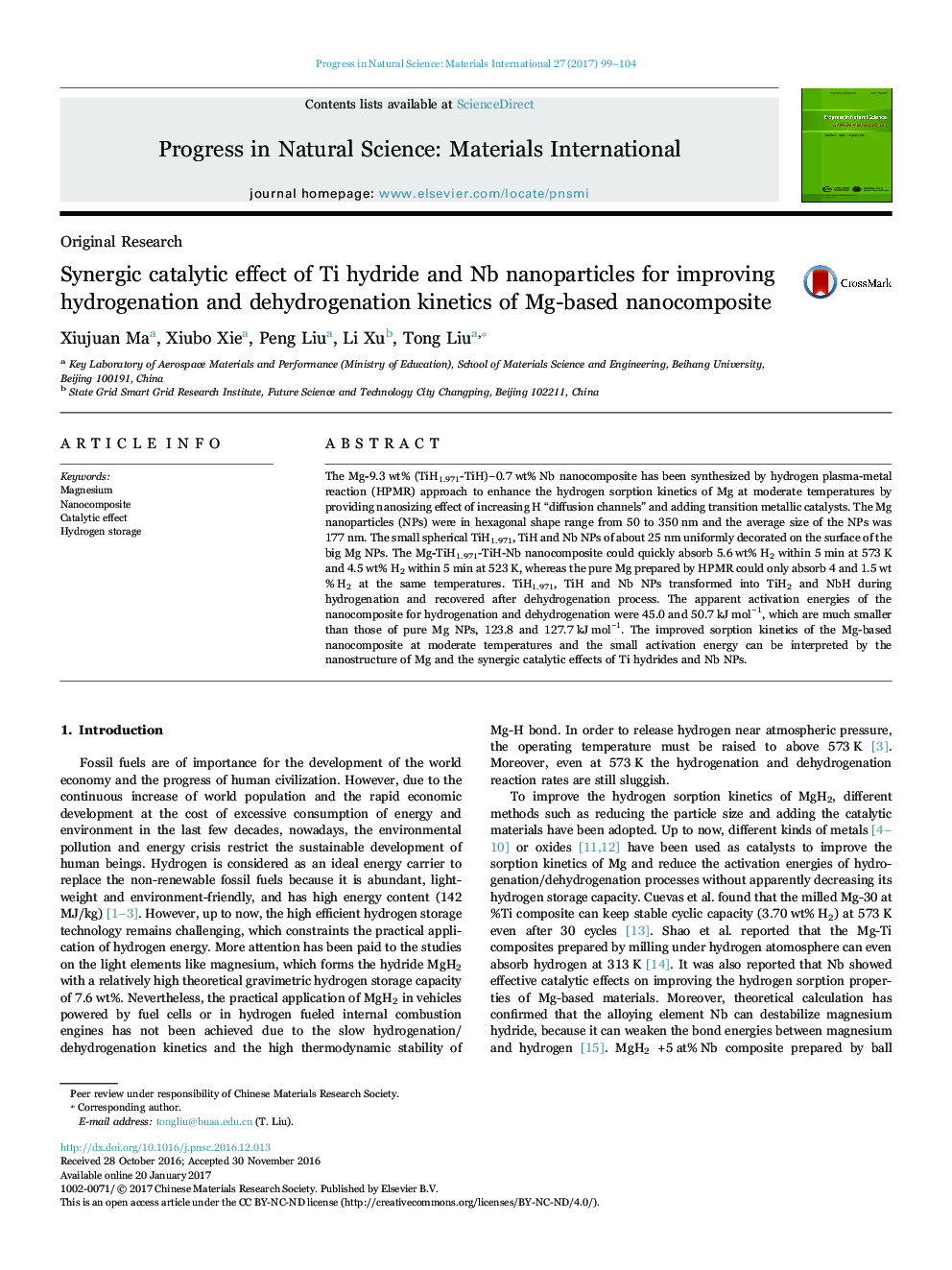| Article ID | Journal | Published Year | Pages | File Type |
|---|---|---|---|---|
| 5450421 | Progress in Natural Science: Materials International | 2017 | 6 Pages |
Abstract
The Mg-9.3Â wt% (TiH1.971-TiH)â0.7Â wt%Â Nb nanocomposite has been synthesized by hydrogen plasma-metal reaction (HPMR) approach to enhance the hydrogen sorption kinetics of Mg at moderate temperatures by providing nanosizing effect of increasing H “diffusion channels” and adding transition metallic catalysts. The Mg nanoparticles (NPs) were in hexagonal shape range from 50 to 350Â nm and the average size of the NPs was 177Â nm. The small spherical TiH1.971, TiH and Nb NPs of about 25Â nm uniformly decorated on the surface of the big Mg NPs. The Mg-TiH1.971-TiH-Nb nanocomposite could quickly absorb 5.6Â wt%Â H2 within 5Â min at 573Â K and 4.5Â wt%Â H2 within 5Â min at 523Â K, whereas the pure Mg prepared by HPMR could only absorb 4 and 1.5Â wt%Â H2 at the same temperatures. TiH1.971, TiH and Nb NPs transformed into TiH2 and NbH during hydrogenation and recovered after dehydrogenation process. The apparent activation energies of the nanocomposite for hydrogenation and dehydrogenation were 45.0 and 50.7Â kJÂ molâ1, which are much smaller than those of pure Mg NPs, 123.8 and 127.7Â kJÂ molâ1. The improved sorption kinetics of the Mg-based nanocomposite at moderate temperatures and the small activation energy can be interpreted by the nanostructure of Mg and the synergic catalytic effects of Ti hydrides and Nb NPs.
Related Topics
Physical Sciences and Engineering
Materials Science
Electronic, Optical and Magnetic Materials
Authors
Xiujuan Ma, Xiubo Xie, Peng Liu, Li Xu, Tong Liu,
